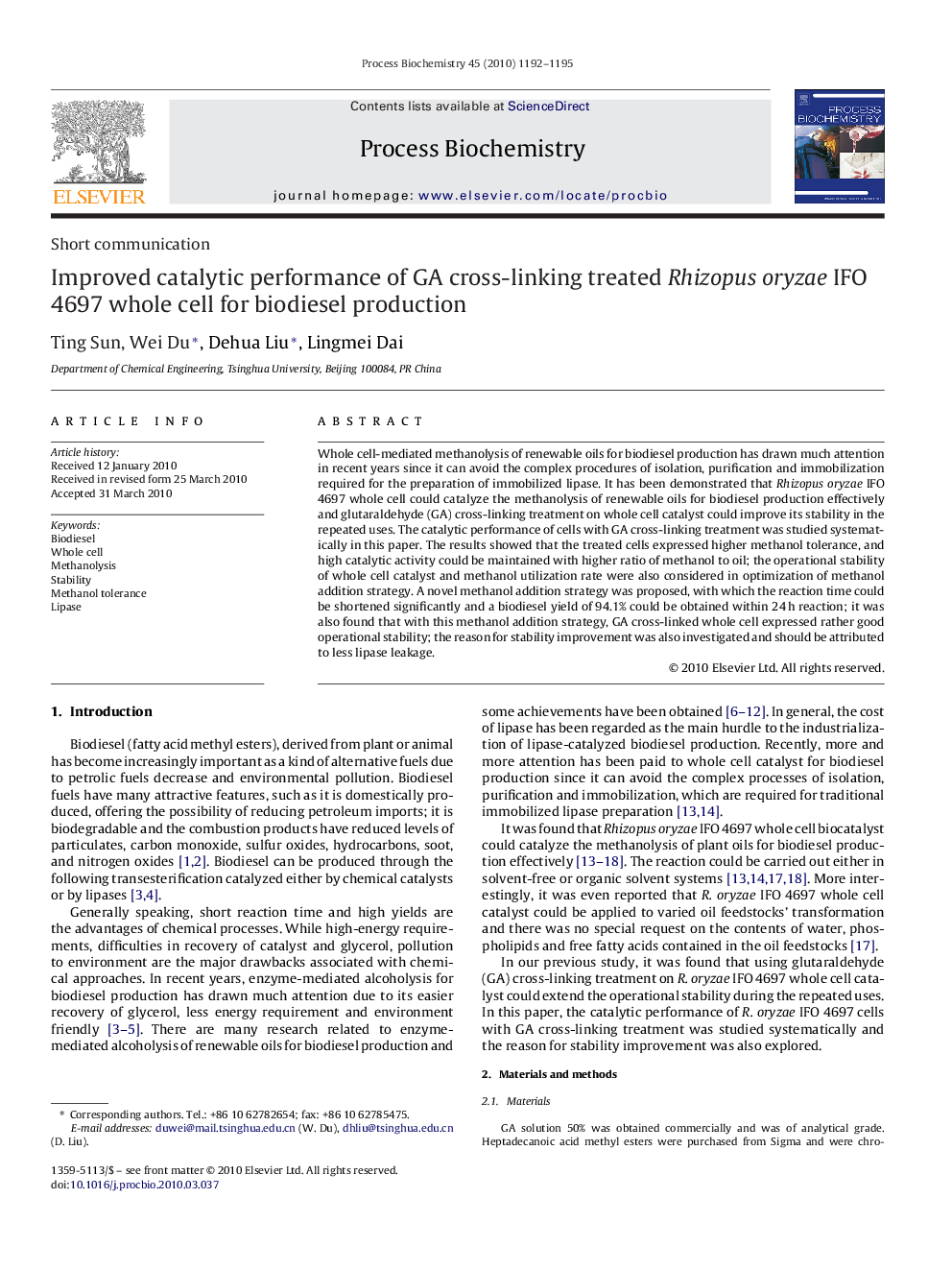| Article ID | Journal | Published Year | Pages | File Type |
|---|---|---|---|---|
| 35198 | Process Biochemistry | 2010 | 4 Pages |
Whole cell-mediated methanolysis of renewable oils for biodiesel production has drawn much attention in recent years since it can avoid the complex procedures of isolation, purification and immobilization required for the preparation of immobilized lipase. It has been demonstrated that Rhizopus oryzae IFO 4697 whole cell could catalyze the methanolysis of renewable oils for biodiesel production effectively and glutaraldehyde (GA) cross-linking treatment on whole cell catalyst could improve its stability in the repeated uses. The catalytic performance of cells with GA cross-linking treatment was studied systematically in this paper. The results showed that the treated cells expressed higher methanol tolerance, and high catalytic activity could be maintained with higher ratio of methanol to oil; the operational stability of whole cell catalyst and methanol utilization rate were also considered in optimization of methanol addition strategy. A novel methanol addition strategy was proposed, with which the reaction time could be shortened significantly and a biodiesel yield of 94.1% could be obtained within 24 h reaction; it was also found that with this methanol addition strategy, GA cross-linked whole cell expressed rather good operational stability; the reason for stability improvement was also investigated and should be attributed to less lipase leakage.
